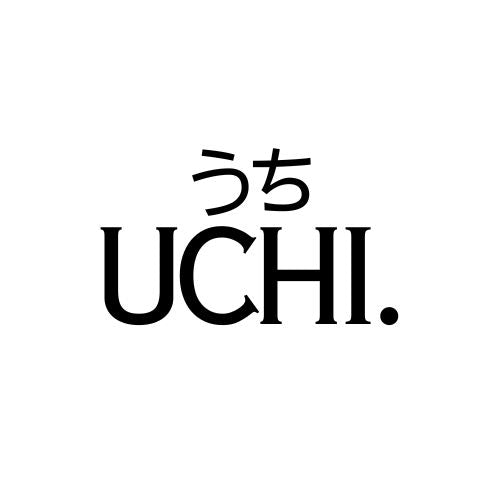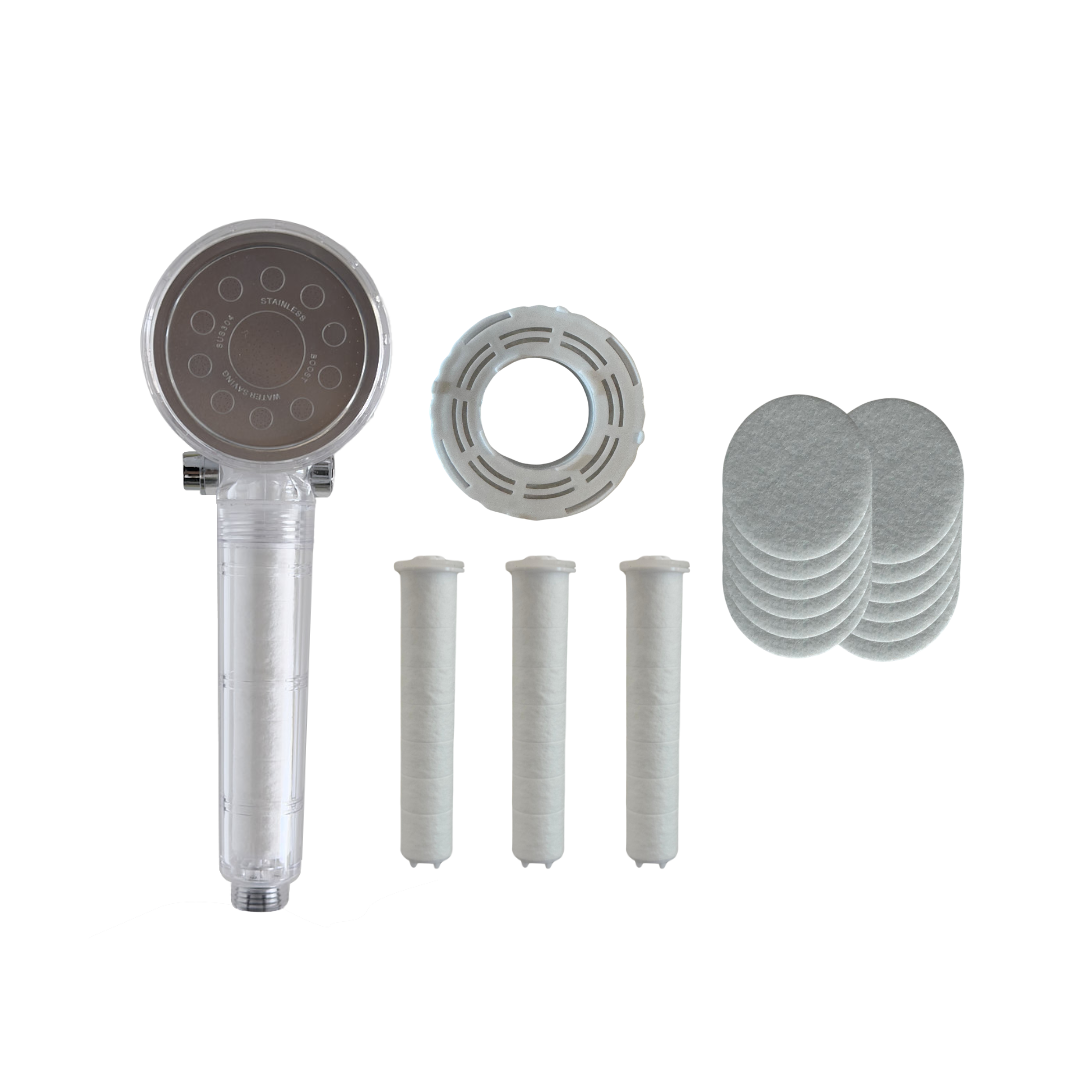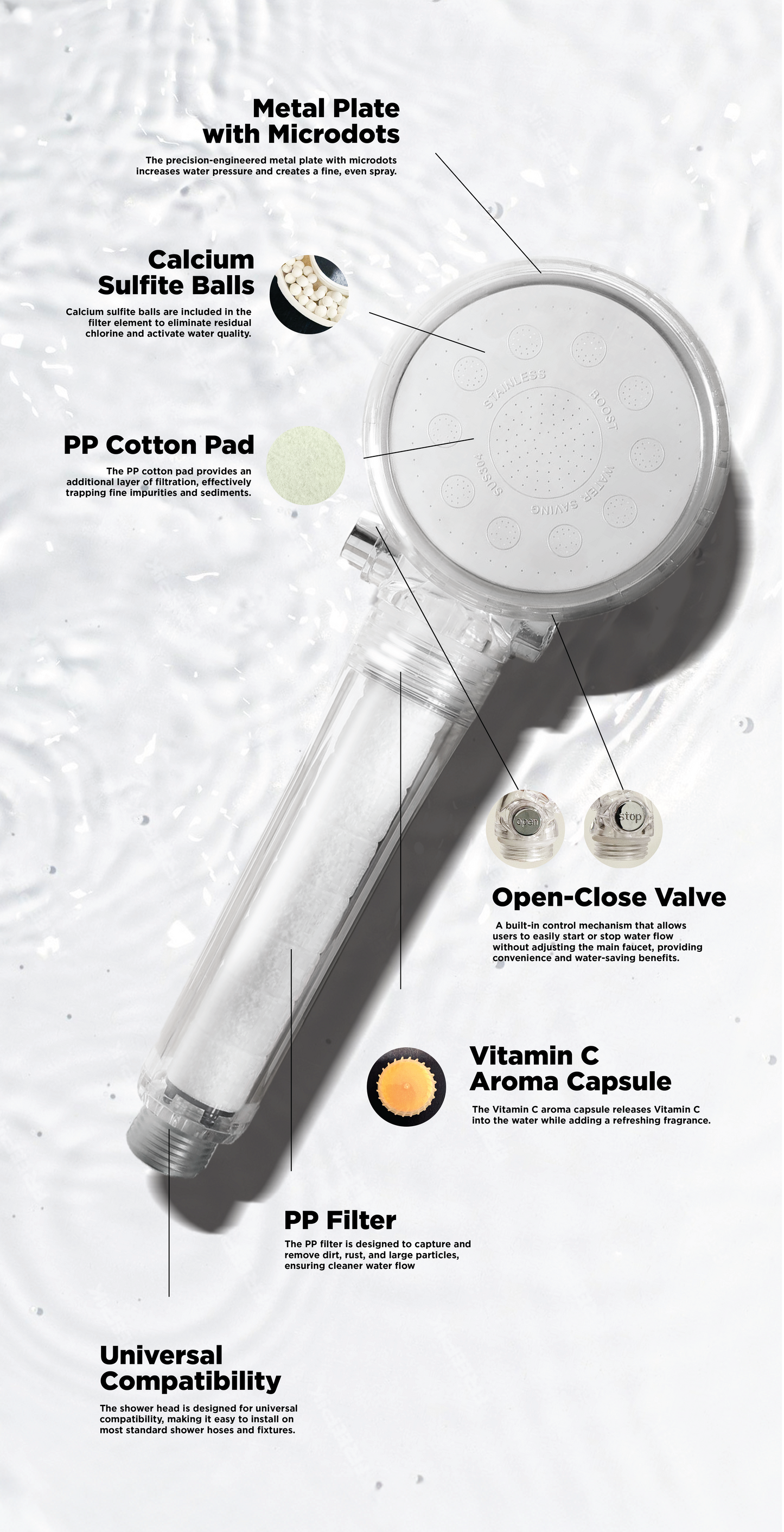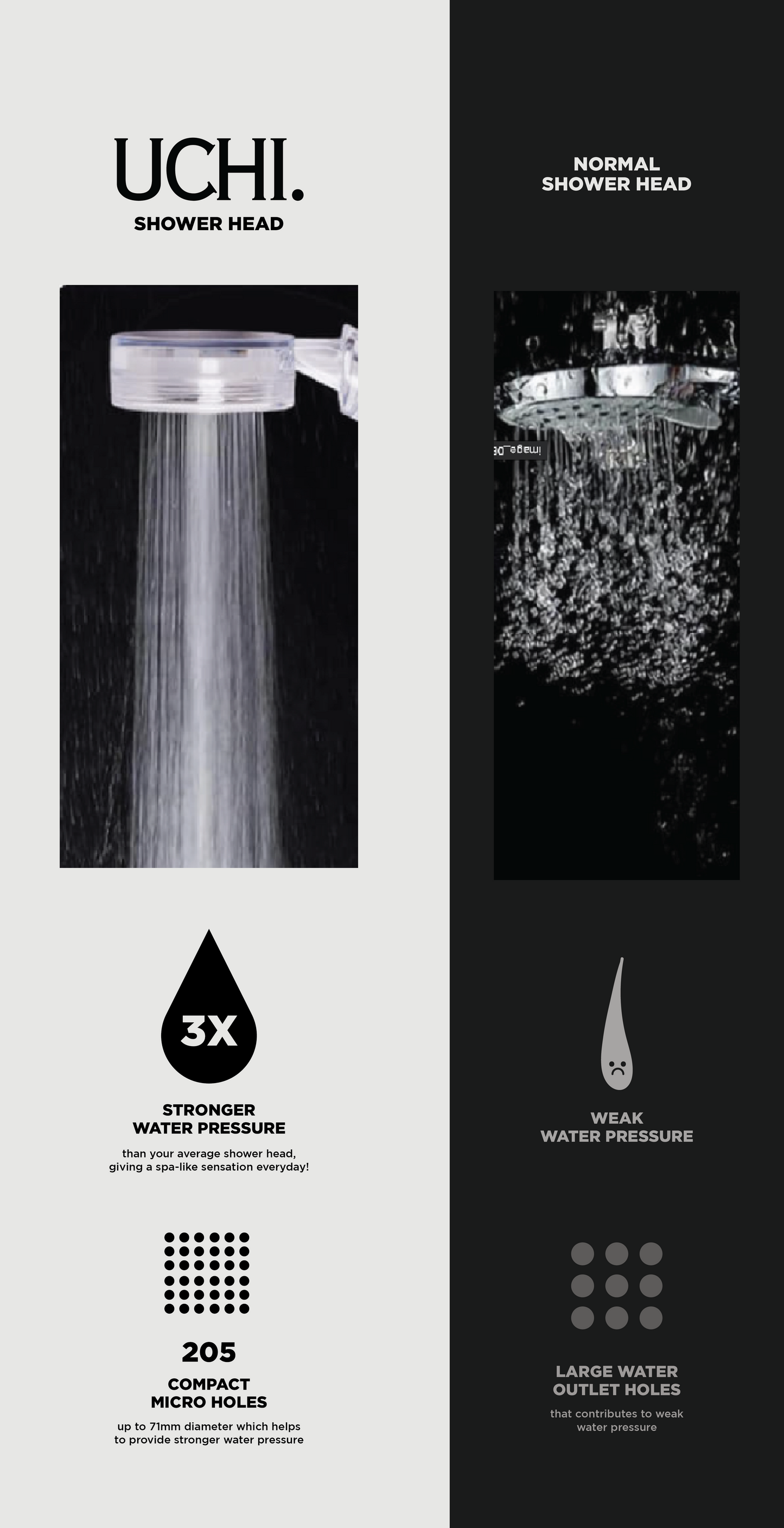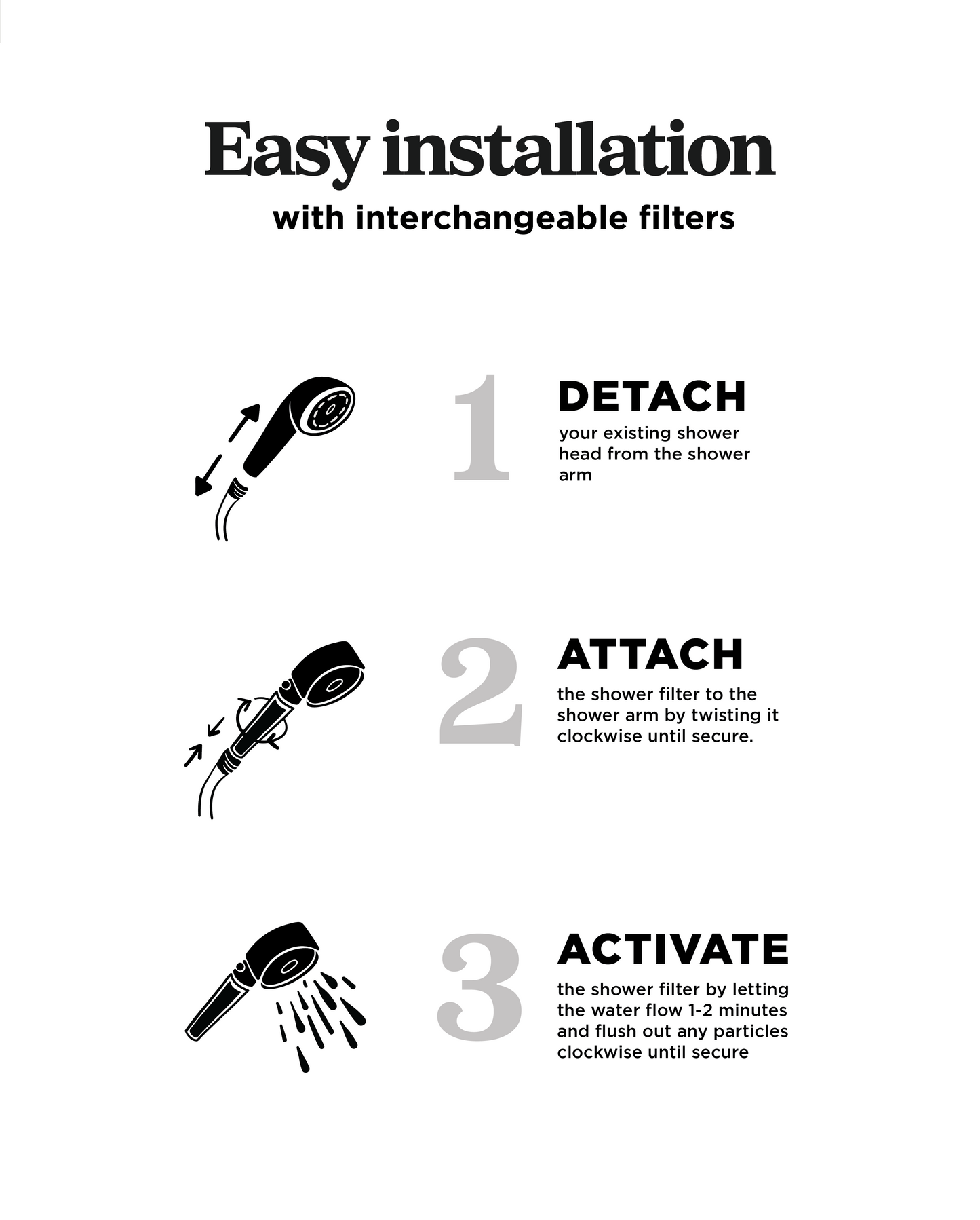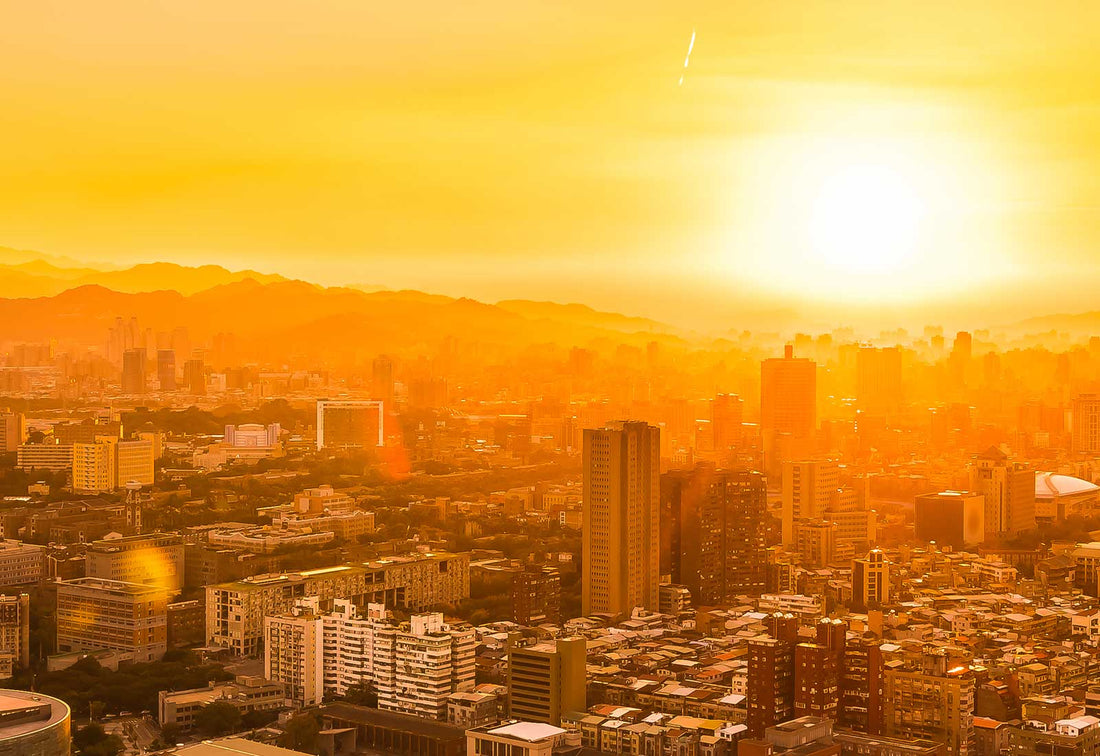
Do Air‑Conditioning & Hard Water Worsen Dry Skin? What Malaysians Should Know
Share
The Heatwave Isn’t Just Making You Sweat—It’s Damaging Your Skin Too
Malaysia’s climate has always been hot and humid—but recent heatwaves across the country have pushed temperatures to extreme levels. With daytime highs consistently breaching 37°C, many Malaysians and expatriates are seeking refuge indoors.
But here’s the scary part: prolonged exposure to heat isn't just uncomfortable—it’s biologically stressful to your skin. What happens to your skin during a heatwave:
- Sweat glands go into overdrive, trying to cool your body down. This excessive sweating causes your skin to lose vital moisture and electrolytes, leaving it dry, sticky, and imbalanced.
- UV radiation is at its peak during a heatwave, accelerating collagen breakdown and skin barrier degradation, which leads to early signs of aging (think: fine lines, dullness).
- Frequent face washing and showers, while refreshing, strip your skin of its natural protective oils, especially if you’re using chlorinated or hard water.
As expatriates and locals alike crank up their air-conditioning and take more frequent showers to cool down, many are noticing increasing dryness, tightness, and irritation. But there’s more at play than just hot weather.
In truth, it’s the combination of AC exposure and hard shower water that can create a damaging cycle for your skin—and the effects may be more severe than you realize.
Why Air Conditioning Is Quietly Sabotaging Your Skin
Air-conditioning feels like a savior during Malaysia’s stifling heat—but it’s also one of the biggest culprits of skin dehydration.
- Air-conditioning significantly reduces humidity, often below 40% indoors. This low moisture environment draws natural water out of your skin, causing dehydration, flakiness, and a compromised skin barrier.
- According to dermatologists, consistent exposure to dry indoor air can lead to premature aging, eczema flare-ups, and rough, dehydrated skin.
- Strangely, many people assume drinking more water will help—but skin hydration depends on what’s happening on the skin’s surface, not just inside.
- Sleeping in AC rooms overnight means 8+ hours of constant dehydration, resulting in morning dullness, dry patches, and irritation.
"Clinical studies have shown that extended exposure to low humidity environments causes significant transepidermal water loss (TEWL), reducing skin elasticity and moisture retention capacity."
— National Center for Biotechnology Information (NCBI)
In Malaysia, where air-conditioners often run all day and night during hot spells, your skin may be quietly losing more water than you can replenish, even with moisturizers and hydration.
How Hard Water Makes Things Worse—Especially in Malaysia
Many urban areas in Malaysia—including Kuala Lumpur, Johor Bahru, and Ipoh—are serviced by water with high mineral content (calcium, magnesium). This “hard water” often:
- Leaves soap scum residue on your skin, preventing moisturizers from absorbing properly
- Makes the skin feel tight post-shower, as minerals strip away natural oils
- Triggers eczema, acne, and dermatitis, especially when combined with frequent AC use
When you’re already struggling to retain moisture from the inside out, hard water becomes the enemy on the outside in.
Big Picture: Why This Combo is So Harmful
|
Condition |
Health Impact |
Why It Matters in Malaysia |
|
Air-conditioning use |
Dehydrated skin, eczema flare-ups |
High indoor AC use during heatwave |
|
Hard shower water |
Skin irritation, barrier damage |
Mineral-rich water in many Malaysian cities |
|
Frequent showers |
Loss of natural oils |
Multiple showers per day to cool off |
|
Long-term effects |
Early wrinkles, dry patches, dull skin |
Compounding changes in skin structure |
What You Can Do to Reclaim Healthy Skin
Dry, itchy, and flaky skin isn't something you should have to "tolerate" because of the climate. Your skin is your largest organ — and when it's crying out for help, ignoring the warning signs can lead to long-term damage like sensitivity, premature aging, and persistent inflammation.
Here are effective, science-backed ways to restore and protect your skin barrier, especially in Malaysia’s hot, humid—and ironically dehydrating—environment:
1. Start with What You Shower In: Filter Your Water
Your shower water may be the single most overlooked cause of persistent dry skin. Malaysian municipal water is chlorinated and often contains rust, sediment, and minerals that:
- Strip away the skin’s natural oils
- Disrupt the pH balance of your skin
- Leave a residue that prevents effective moisturizing
Solution: Install a high-quality shower head filter like the UCHI Shower Head Filter to:
- Neutralize chlorine and harsh chemicals
- Reduce heavy metals and sediment
- Soften water to minimize irritation
Fun fact: Soft, filtered water allows your body wash and shampoo to rinse off more thoroughly, which helps avoid build-up and clogged pores — a major plus for acne-prone or sensitive skin.
2. Rebuild Your Skin’s Moisture Barrier
Dry, tight skin is often the result of a damaged lipid barrier, which allows water to escape from the skin too quickly. Invest in:
- Barrier-repair moisturizers with ingredients like ceramides, hyaluronic acid, niacinamide, and squalane.
- Ointment-based or richer moisturizers at night, especially if you sleep in air-conditioned rooms.
- Hydrating mists or toners throughout the day to offset moisture loss.
During a heatwave: Use a chilled gel moisturizer post-shower to calm inflammation.
3. Don’t Abuse the Air-Conditioner
Yes, we get it—it's 36°C outside. But over-reliance on AC, especially with low humidity, is a slow, silent killer of your skin’s hydration.
Tips:
- Use a humidifier in your bedroom or workspace to bring air moisture levels back to 40–60%.
- Keep AC temps moderate (24–26°C), not freezing cold or on Full Blast.
-
Avoid sleeping with the AC blowing directly on your face.
Pro tip: Place a bowl of water or a wet towel in the room if you don’t have a humidifier. It’s an old-school hack to add moisture to dry AC air.
4. Hydrate From Within (But That’s Not Enough)
Drinking water is critical, but internal hydration doesn’t always translate to skin hydration, especially when external factors are stripping your skin dry.
Combine water intake with external moisturization AND environmental protection (filtered showers, AC humidity control) for best results.
5. Limit Heat Exposure & Sun Damage
High temperatures + UV = inflammation, skin thinning, and water loss.
- Use broad-spectrum SPF 30+ even indoors, as UV rays can penetrate windows.
- Avoid direct sun between 11am–3pm.
- Cool down slowly after being outside — avoid jumping into a cold shower immediately, which can cause microshock to already stressed skin.
6. Use Gentle, Skin-Loving Cleansers
Many commercial soaps and body washes contain sulfates, parabens, and artificial fragrance — all of which worsen dryness when mixed with harsh water. Switch to:
- Low-pH cleansers
- Fragrance-free, sulfate-free body washes
- Moisturizing body oils or cleansing milks
Meet the Solution: UCHI Shower Head Filter for Malaysian Skin Health
If you’re battling dry, itchy, or sensitive skin during this heatwave, consider this your wake-up call. The UCHI Shower Head Filter was created with Malaysian water issues in mind:
- Dual-stage PP and KDF-55 filtration to remove sediment, chlorine, rust, and minerals
- Tool-free installation, fitting standard Malaysian showers
- Easy-to-replace cartridges (2–3 months each) to maintain peak performance
- Helps prevent dry skin, eczema flare-ups, and frizzy hair—even with frequent AC use
Especially in a time when you're showering more often to cool down, filtered water is a simple way to shield your skin from deeper harm.
Don’t Let AC and Hard Water Dry You Out
Your skin doesn’t have to suffer in silence—especially not in Malaysia’s modern homes. A simple shift in shower water quality could be the beginning of a healthier, more resilient skin barrier.
Clean water, cooler showers, and mindful moisturization—give your skin the respect it deserves.
Explore UCHI Shower Head Filter Now and start protecting your skin from the root of the problem.
